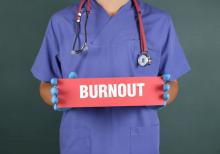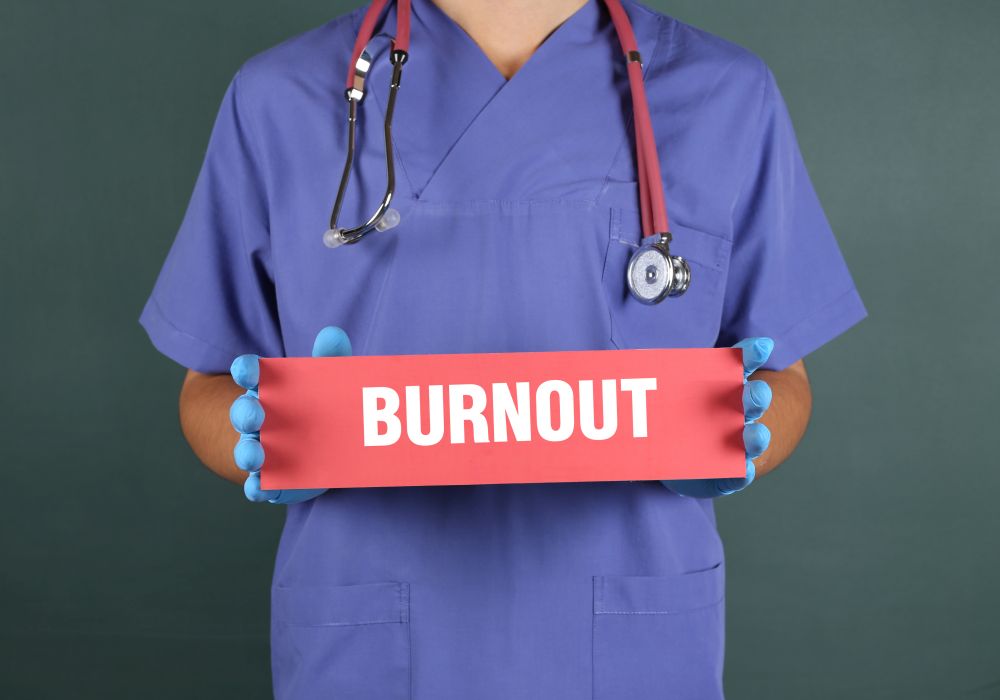User login
MONTREAL – Female family physicians report more burnout and fewer self-care activities than their male colleagues, according to the results of a survey that found a significant gender divide in physician wellness.
Female respondents to the Texas-wide electronic survey of practicing physicians and residents reported more emotional exhaustion (P = .004) and higher levels of work stress (P = .009) than their male colleagues. Additionally, they reported sleeping less (P = .009), exercising less (P = .001), and eating healthy food less often (P = .005).
In an interview, Dr. Holder said she and her colleagues sent electronic surveys to family physicians, using the Residency Research Network of Texas champion at each of 11 family medicine residency sites. The champion helped with administration to residents, and also engaged community-based physicians in their region to complete the survey.
A total of 324 physicians completed the survey; 54% were female. The female respondents were younger (P = .001) and less likely to be married (P = .019) than the male physicians who responded.
A high level of emotional exhaustion, as assessed by responses on the Maslach Burnout Inventory, was reported by more than a third of physician respondents. Male respondents, however, were more likely to endorse factors protective against burnout, including feeling a higher level of personal accomplishment (P = .004) and having more resilience (P = .002). They also were more likely to participate in activities outside of work (P = .007).
Dr. Holder said she was surprised by the pervasively higher rates of burnout and lower levels of self-care the survey revealed among family physicians in Texas. She would have been less surprised to see the association in female physicians with children, but, she said, unpublished data didn’t bear that association out.
“Creating wellness programs during residency that are aimed at teaching physicians to incorporate self-care into their routines, especially females, may lead to decreased rates of burnout later in physicians’ careers,” said Dr. Holder.
In a discussion during the poster session, Dr. Holder, who is the associate program director for the Baylor Family Medicine residency program in Garland, Tex., said that she herself tries to make room for exercise in a busy schedule and eats so healthily that her residents tease her about it. It’s important to provide positive role modeling for residents, both male and female alike, during their training years, she said.
Dr. Holder reported no relevant financial conflicts of interest.
koakes@frontlinemedcom.com
On Twitter @karioakes
MONTREAL – Female family physicians report more burnout and fewer self-care activities than their male colleagues, according to the results of a survey that found a significant gender divide in physician wellness.
Female respondents to the Texas-wide electronic survey of practicing physicians and residents reported more emotional exhaustion (P = .004) and higher levels of work stress (P = .009) than their male colleagues. Additionally, they reported sleeping less (P = .009), exercising less (P = .001), and eating healthy food less often (P = .005).
In an interview, Dr. Holder said she and her colleagues sent electronic surveys to family physicians, using the Residency Research Network of Texas champion at each of 11 family medicine residency sites. The champion helped with administration to residents, and also engaged community-based physicians in their region to complete the survey.
A total of 324 physicians completed the survey; 54% were female. The female respondents were younger (P = .001) and less likely to be married (P = .019) than the male physicians who responded.
A high level of emotional exhaustion, as assessed by responses on the Maslach Burnout Inventory, was reported by more than a third of physician respondents. Male respondents, however, were more likely to endorse factors protective against burnout, including feeling a higher level of personal accomplishment (P = .004) and having more resilience (P = .002). They also were more likely to participate in activities outside of work (P = .007).
Dr. Holder said she was surprised by the pervasively higher rates of burnout and lower levels of self-care the survey revealed among family physicians in Texas. She would have been less surprised to see the association in female physicians with children, but, she said, unpublished data didn’t bear that association out.
“Creating wellness programs during residency that are aimed at teaching physicians to incorporate self-care into their routines, especially females, may lead to decreased rates of burnout later in physicians’ careers,” said Dr. Holder.
In a discussion during the poster session, Dr. Holder, who is the associate program director for the Baylor Family Medicine residency program in Garland, Tex., said that she herself tries to make room for exercise in a busy schedule and eats so healthily that her residents tease her about it. It’s important to provide positive role modeling for residents, both male and female alike, during their training years, she said.
Dr. Holder reported no relevant financial conflicts of interest.
koakes@frontlinemedcom.com
On Twitter @karioakes
MONTREAL – Female family physicians report more burnout and fewer self-care activities than their male colleagues, according to the results of a survey that found a significant gender divide in physician wellness.
Female respondents to the Texas-wide electronic survey of practicing physicians and residents reported more emotional exhaustion (P = .004) and higher levels of work stress (P = .009) than their male colleagues. Additionally, they reported sleeping less (P = .009), exercising less (P = .001), and eating healthy food less often (P = .005).
In an interview, Dr. Holder said she and her colleagues sent electronic surveys to family physicians, using the Residency Research Network of Texas champion at each of 11 family medicine residency sites. The champion helped with administration to residents, and also engaged community-based physicians in their region to complete the survey.
A total of 324 physicians completed the survey; 54% were female. The female respondents were younger (P = .001) and less likely to be married (P = .019) than the male physicians who responded.
A high level of emotional exhaustion, as assessed by responses on the Maslach Burnout Inventory, was reported by more than a third of physician respondents. Male respondents, however, were more likely to endorse factors protective against burnout, including feeling a higher level of personal accomplishment (P = .004) and having more resilience (P = .002). They also were more likely to participate in activities outside of work (P = .007).
Dr. Holder said she was surprised by the pervasively higher rates of burnout and lower levels of self-care the survey revealed among family physicians in Texas. She would have been less surprised to see the association in female physicians with children, but, she said, unpublished data didn’t bear that association out.
“Creating wellness programs during residency that are aimed at teaching physicians to incorporate self-care into their routines, especially females, may lead to decreased rates of burnout later in physicians’ careers,” said Dr. Holder.
In a discussion during the poster session, Dr. Holder, who is the associate program director for the Baylor Family Medicine residency program in Garland, Tex., said that she herself tries to make room for exercise in a busy schedule and eats so healthily that her residents tease her about it. It’s important to provide positive role modeling for residents, both male and female alike, during their training years, she said.
Dr. Holder reported no relevant financial conflicts of interest.
koakes@frontlinemedcom.com
On Twitter @karioakes
AT NAPCRG 2017
Key clinical point:
Major finding: Female family physicians are more likely to experience emotional exhaustion than their male counterparts (P = .009).
Data source: A survey of 324 family physicians in Texas.
Disclosures: Dr. Holder reported no relevant financial conflicts of interest.

